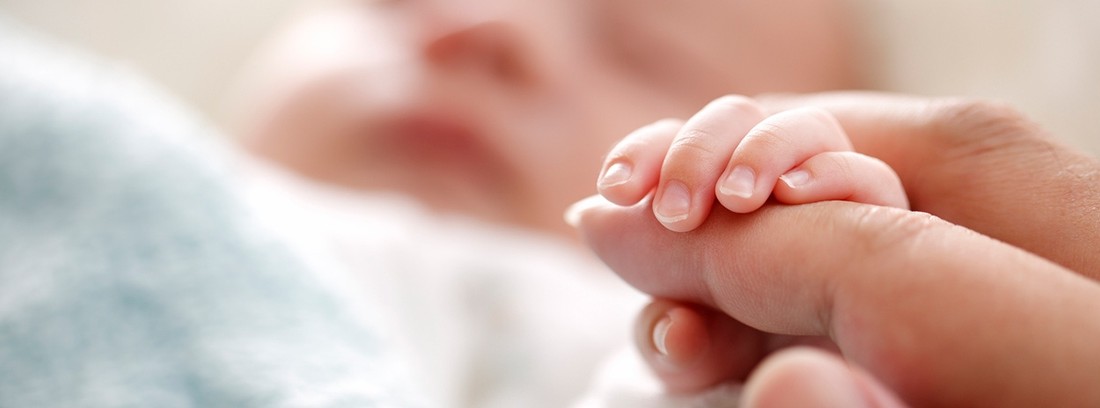Maternal-filial thyroid disorders

They are alterations in the functioning of the thyroid gland. thyroid problems in the mother can affect the baby.
Maternal hypothyroidism
The hypothyroid woman has a decrease in the thyroid gland. If you do not receive proper treatment, you may have problems getting pregnant, an increased risk of miscarriage, and newborns with low birth weight and neurological problems.
In cases where the pregnant woman has non-autoimmune hypothyroidism, if correct treatment and control of the mother's disease is carried out, she can have children without problems.
Maternal hyperthyroidism
Between 1-2% of the children of hyperthyroid mothers (Hashimoto's thyroiditis or Graves' disease) may have excessive thyroid function because the mother passes substances that increase the function of the gland into the placenta through the placenta. baby. In the newborn it manifests with tachycardia, irritability, weight loss and diarrhea.
In these cases, excess thyroid function is transitory and, when thyroid function returns to normal, the baby does not have any other problems.
The most common symptoms in the newborn are tachycardia (increased heart rate), irritability, exophthalmos, tremors, microcephaly, and low weight and height.
Congenital hypothyroidism
It is the decrease in the function of the thyroid gland in a newborn. It affects 1 in every 3,000 or 4,000 births.
It is one of the few preventable causes of serious learning difficulties.
Causes
- Absence of the thyroid gland
- Abnormal descent of the thyroid during fetal development (the thyroid is not in its normal position, but is seen under the tongue)
- Low thyroid hormone production
- Pituitary insufficiency that is unable to stimulate the function of the thyroid gland
- Iodine deficiency (the most common cause in developing countries). It is the only cause of congenital hypothyroidism that can be prevented by giving the mother iodine supplements or by using iodized salt with meals.
- Application of iodinated antiseptics on the skin of the newborn
Symptoms
In the newborn of a few days old, the typical symptoms of hypothyroidism are difficult to see. As time passes, if hypothyroidism is not treated, the signs of the disease become more apparent.
- Face with coarse features (like puffy)
- Sad look
- Very large tongue (macroglossia)
- Dry and brittle hair.
- Pale, dry and cold skin
- Low hair implantation
- Jaundice (yellowish tinge to the skin and mucous membranes)
- They eat bad
- Lack of muscle tone (hypotonic baby)
- Constipation
- Drowsiness
- Slowness and little activity
- Short stature
- Very large fontanelles
- Wide hands and short fingers. Short arms and legs
- Difficulty growing
- Hoarse cry
Diagnosis and treatment
Screening all newborns for hypothyroidism (heel test) is of the utmost importance; early treatment is essential to prevent learning difficulties and ensure normal growth.
If neonatal screening indicates that there is hypothyroidism, specific tests must be performed to study the thyroid.
Treatment consists of giving the baby the hormone that the thyroid gland does not make (thyroxine). Treatment is for life.
Babies who are treated from the first month of life have normal growth and intelligence.
(Updated at Apr 13 / 2024)